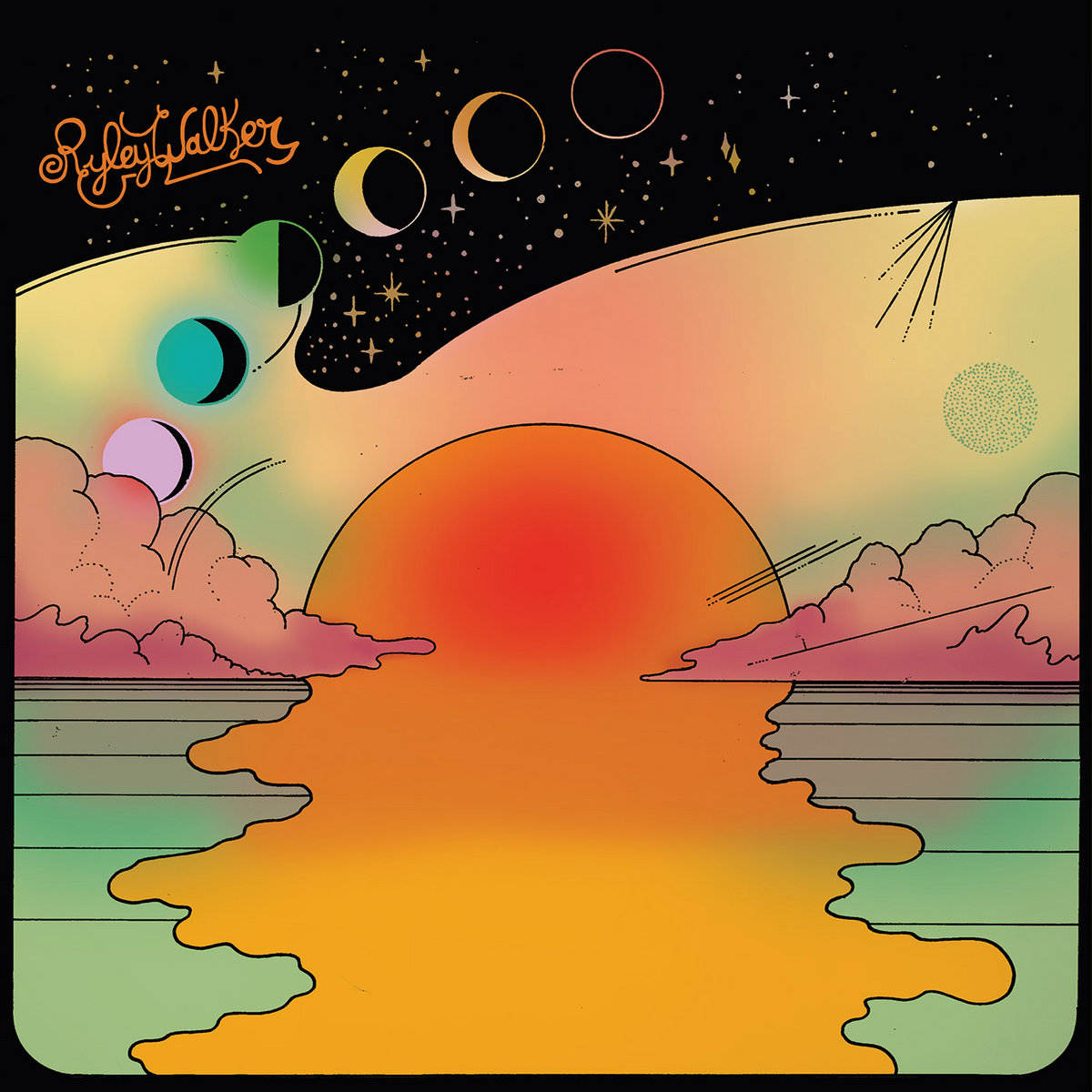Not Even Happiness
Julie Byrne
Ba Da Bing! Records 2017
Listen on Spotify
The world can sometimes
feel like an hourglass; the sand is life’s chaos, and the only assurance is
that time will keep moving with or without us. It becomes increasingly
difficult to parse through the clutter and decipher that which has lasting
value, and conversely what serves only to detract from finding a life of
meaning and purpose. Thankfully, this is where Julie Byrne comes in. A
mid-twenties singer-songwriter with a prodigious sense of connecting to a
higher, larger power, her second album Not
Even Happiness represents a significant step forward musically, with the
narrower folk influences of her first record broadening to something far more
spacey, even atmospheric. Her cool, delicate voice and sparse guitar strumming
pairs beautifully with deliberate allusions to the purity of nature, making the
listening experience feel more like a cleanse than anything else. Thematically,
we’re once again given a fascinating glimpse into Byrne’s personal journey, and
more importantly, a blueprint for finding a life of contemplation and substance.
For how familiar
Byrne’s music feels upon first (and fifteenth) listen, it’s funny how
unconventional she is as a musician. Admittedly, she hardly ever listens to
contemporary music, or music at all- the first record in her collection was her
own. Instead, she’s always felt more of an affinity for poetry, making it no
wonder that Bob Dylan has helped in developing her lyrical prowess. She taught
herself to play guitar after her father, who she watched for years growing up,
became ill and could no longer play. Rather than hindering her music, her lack
of direct experience serves as a point of strength. Simple, yet glimmering,
guitar melodies sound nothing but organic, and her wordy, atypical lyric
structures make it difficult not to spurn the title of musician altogether and
just call her a poet. Alongside her preference for the openness of nature (don’t
let the fact that she lives in New York City fool you), Byrne’s personal
qualities add up to the perfect storm for an album of tranquility; vivid
imagery of the Pacific Northwest (“Melting Grid”) and the vastness of the Rocky
Mountains (“Natural Blue”) are best enjoyed with your eyes closed, an escape
into calamity and quiet.
The first three
words of the album, “Follow My Voice,” are an introduction to the collective
force of the record, the listener has no choice but to comply. The closing
words of the opener “Beyond this light/ Beyond all the fear/ Beyond this love/
Beyond all the fear” demonstrate the power of transcendence contained within Byrne’s
voice, making no mistake that the intrinsic value of the music will persist
indefinitely. “Sleepwalker,” the second track, make it easy to forget that
Byrne isn’t professionally trained. A surprisingly intricate melody guides a
song that finds her seeking all of the right things- love, peace, solitude-
only to remain lonely and in misery. The song gives the album title tremendous
relevance and the listener something to consider. Perhaps happiness is a
fleeting, shallow feeling. Maybe it isn’t rewarding as it might seem. Byrne
sure seems to think so.
“Natural Blue,”
a stunning ode to the mountain sky of Colorado, symbolizes the nomadic nature
of years spent traveling around the country and the world. Byrne’s voice is
drenched in ambience, and her guitar settles quietly in the background. The
aforementioned chaos couldn’t be further away, as the crooning repetition of
the song’s title becomes ensconced in the grandiose landscape. Her voice fades
away, and the impending interlude is a fitting nod at the magnitude of such precious
moments. Moments of awe, moments of feeling dwarfed by the natural powers that
govern our world- they define the confines of words entirely. After an
indeterminate amount of time spent pondering, the finger-picking returns, as if
it had been there all along.
Some of the most
daring, thought-provoking attempts were saved for last, with the album’s final
two songs showcasing an impressive aura of reverb created by lush guitar
effects and Byrne’s unfurling voice. “Sea as it Glides” is a powerful analogy
of the grasping at a relationship, coming and going as predictably as the
tides, appearing close but untethered at the same time. As the sounds of the
tide persists, Byrne’s most instrumentally varied and lyrically magnanimous effort
emerges. The painful honesty of mistakes once made, and brutal questions of
whether it all was worthwhile sting, but necessarily. Love has escaped her, and
loneliness remains. But happy or not, Byrne has journeyed to a place that is
unequivocally rewarding. Not only physically to places containing the innate
beauty that will far outlast humanity, but to the places in her mind devoid of
shallowness and mindless hustle and bustle. No more fitting a man than the late
Leonard Cohen encompassed this very idea in his poem, aptly named “Travel”:
Now
I know why men have
stopped and wept
Half-way between the
loves they leave and seek,
And wondered if travel
leads them anywhere-
Horizons keep the soft
line of your cheek,
The windy sky’s a locket
for your hair.


